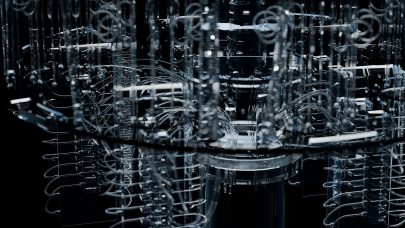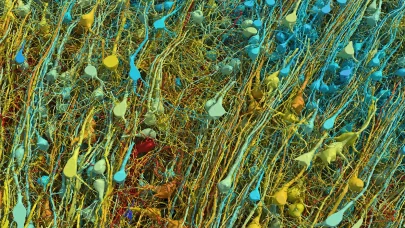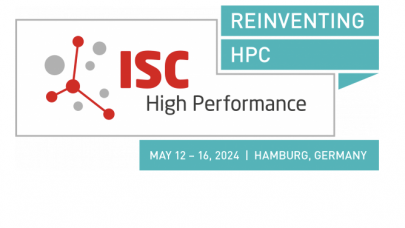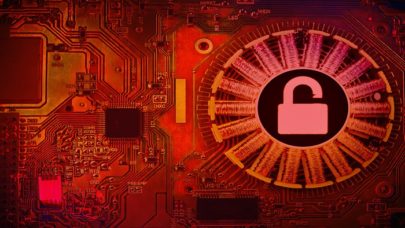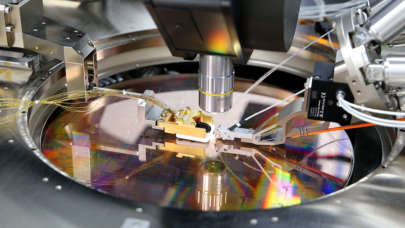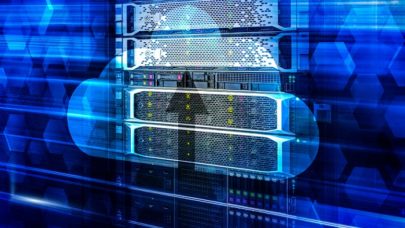On September 26 – 27, 2011 cloud computing experts and end-users from around the world will gather at the ISC Cloud’11 Conference at the Dorint Hotel in Mannheim, Germany. The conference will focus on compute and data intensive applications, their resources needs in the cloud, and strategies on implementing and deploying cloud infrastructures.
ISC Cloud Conference Chairman Wolfgang Gentzsch spoke with Ian Foster, Director of the Computation Institute, a joint institute of the University of Chicago and Argonne National Laboratory. He is also an Argonne Senior Scientist and Distinguished Fellow, and the Arthur Holly Compton Distinguished Service Professor of Computer Science at the University of Chicago. The Conference Early Bird registration ends August 31.
HPCc: Can, you will be the Keynote Speaker at the second international ISC Cloud’11 conference end of September in Germany which will focus on big data and high performance computing, or, short, HPC in the Cloud. What kind of HPC are you addressing these days which is worth discussing in keynote lecture?
Foster: I am delighted to be invited to speak at ISC Cloud’11, because it gives me an opportunity to speak to my current passion, which is the vital role that software as a service (SaaS) can play in accelerating discovery.
Most discussion of computational science (“HPC”) and cloud emphasizes on-demand computing and storage. But if we focus on hardware alone, we miss the real benefits of the large-scale outsourcing and consequent economies of scale that cloud is about. The biggest IT challenge facing research today is complexity. Certainly, big data demands new storage and computing solutions. But it is establishing and operating the processes required to collect, manage, analyze, share, and archive big data that is taking all of our time and killing creativity. And that’s where outsourcing can be transformative. An entrepreneur can run a small business from a coffee shop, outsourcing essentially every business function–accounting, payroll, customer relationship management, the works–to a SaaS provider. Why can’t a young researcher do the same, and run a research lab from a coffee shop? That’s the question I will pose in my keynote.
HPCc: Looking at the title of your talk: “We’re Smarter than we Think: Accelerating Discovery by Outsourcing the Mundane”, what is the ‘mundane’ you are aiming at outsourcing in science?
Foster: 50 years ago, JCR Licklider estimated that 85% of his “research time” was spent in activities that merely prepared him to think: for example, converting data from one representation to another. Today, that percentage is surely much larger. Exploding data volumes mean that data management activities often become all-consuming. Bureaucratic demands are also greater: a recent US Federal Demonstration Partnership faculty survey found that 42% of research time is spent in non-research activities. Some of these activities are intellectually demanding, but many are straightforward and automatable: in other words, they are mundane. Researchers shouldn’t have to do mundane tasks. They shouldn’t have to recruit and manage people to perform mundane tasks on their behalf. Like small businesses (and increasingly, large businesses, too), they should outsource those tasks to experts, who can do them better and more cheaply.
It is this realization that recently led my colleagues and I to launch Globus Online, a new project that a! ims to provide complex and time-consuming research management processes via SaaS. In the first phases of this project, we’re focused on relatively simple processes, like data movement. But our goal is to make the discovery potential of massive data, exponentially faster computers, and deep interdisciplinary collaboration accessible to every one of the million or more professional researchers worldwide–and to the billions of potential citizen scientists– not just a select few “big science” projects.
HPCc: How is Globus Online being received?
Foster: I’ve been developing research software for a long time, but the reception we’re getting for this work is off the charts. I think the reason is that while much of our prior Grid work addressed the exceptional needs of big science, Globus Online addresses the needs of small science projects. Small science is where most scienti! sts work and where the vast majority of discovery occurs, but it’s an area that hasn’t seen a lot of focus in terms of infrastructure software. It’s also an area where big problems are emerging (because of the data deluge) and where the traditional big science approach (build a big team, construct a custom software solution) isn’t feasible.
HPCc: Any statistics you’d like to mention?
Foster: In the first eight months, we’ve grown to 1600 registered users, and moved close to a petabyte and more than 30 million files.
HPCc: Almost 20 years ago, you started Grid Computing together with a handful of likeminded scientists. Today, you are in the midst of Cloud Computing. Therefore, for me, you are the ideal person to ask about your point ofview of the difference between grids and clouds.
Foster: We defined Grid as being about both (a) “hosting” — on-demand access to elastic computing power, which we saw as a force that could transform the computing industry (e.g., see the Grid book), and (b) “federation” — of resources from many sources, which we saw as both necessary to enable large-scale Grid, and required to enable consumption of resources from multiple providers (e.g., see The Anatomy of the Grid paper).
Cloud is mostly about (a), although we now also see some discussion of (b), with talk of “InterCloud protocols,” etc. Thus, Grid and Cloud are similar from a conceptual viewpoint. However, there are clearly differences in the details. Above all, companies like Amazon have succeeded in realizing the economies of scale that are needed for elastic computing to work–something that Grid, being restricted to either supercomputer centers or in-house computing clusters, never did. That success has been enabled by a mix of technological innovation (e.g., virtualization), business model innovation, and the widespread deployment of high-speed networks, which allow! many small businesses to consume infrastructure as a service offerings.
Looking at where the two technologies are being applied with the greatest success, we might say that “Cloud = Hosting; Grid = Federation.” Cloud has realized the transformative potential of on-demand access; Grid addresses the equally challenging problems of resource integration. Grid needs Cloud to prosper (e.g., Globus Online runs its federation services on Amazon); Cloud needs Grid to scale. I hope that those developing next-generation Cloud systems will build on lessons learned from close to 20 years of work on Grid. They should also, of course, study the work of much earlier pioneers. I recommend Doug Parkhill’s remarkably prescient 1966 book, The Challenge of the Computer Utility.
More information about the even where Ian is set to discuss these topics can be found at the ISC Cloud ’11 website.


























